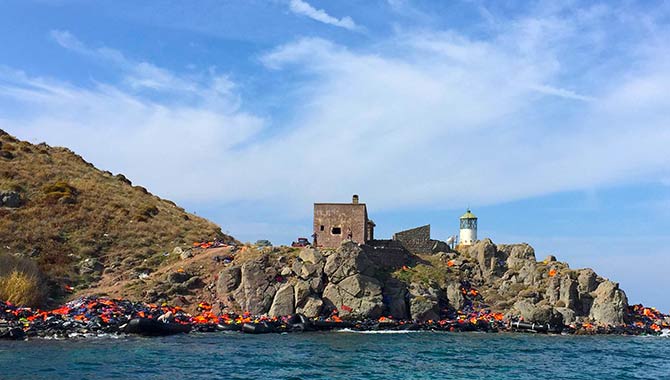A guest blog from festival associates, Us …
—————————————-
The Archbishop of Canterbury has been warmly praised this week by the prime minister for saying that it was ‘outrageous’ to describe as racist those who are afraid that refugees arriving in the UK will have a negative impact on housing, jobs and the NHS.
But we have heard very little from the government about the archbishop’s other comments urging the UK to take a greater number of refugees – ‘our share’, as he puts it.
Neither has there been a response to the archbishop’s claim that, while fear is understandable, so there is also room for hope because the UK has the capacity to accommodate more refugees. He said: ‘We’re those kind (sic) of people, we always have been. But it needs the organisation, it needs the macro and it needs to happen at a European level.’
What the archbishop and the government do agree on is that discussion is vital and that we should not shut down people from discussing their real concerns.
It is true that the refugee problem in Europe is colossal. Greece from the air looks like someone has run an orange highlighter pen around the coastline, such is the density of life jackets that litter the coast from refugees who have arrived from Turkey.
Since January 2015, more than half-a-million refugees have arrived on the island of Lesbos in small boats.
Us is working through the Anglican Chaplaincy in Athens to fund several projects in Greece, including the work of Lighthouse Refugee Relief, a volunteer NGO set up in August 2015 under the guidance of an Orthodox priest, Pappa Christoforus.
Refugees arrive by boat, often at night, and are met by volunteers who provide them with medical care, warm clothes, food, transport and a place to sleep.
Pappa Christoforus acknowledges that his firm belief that ‘God will provide’ sometimes runs counter to the tight logistics and bureaucracy of the larger aid organisations. We don’t all see eye to eye on ‘blanket rationing’, he laughs.
Nevertheless he works closely with the larger aid groups and manages a temporary accommodation site where UNHCR and the NGO Doctors with Borders operate. And, recognising the need for good communication, early on Pappa Christoforus set up co-ordination meetings to help the different agencies working in Greece to pull together. And Us has helped by funding mobile radios to enable quick communication in medical emergencies.
Another key principle is that refugees are greeted as ‘guests’ because: ‘It’s important not to treat people like they are part of a production line.’
So what do you think?
• How can we have a real conversation about migration without unfairly labelling those who think differently to us?
• Do we feel able to share our resources generously, believing that ‘God will provide’, or should we be more cautious in our stewardship?
To download our discussion resource on migration and movement, and to learn more about the work we are supporting in Europe, click here


